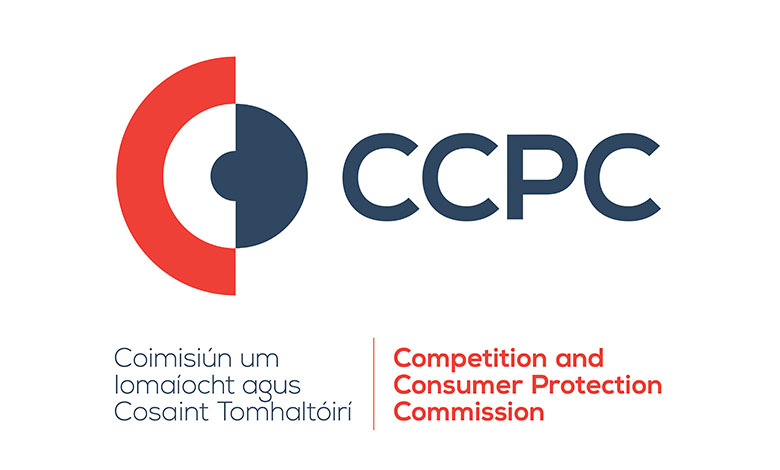Public procurement: Being vigilant for bid-rigging/tender collusion

In terms of public procurement, state and commercial semi-state bodies face two main pressures. Firstly, they must buy goods and services quickly and efficiently. This allows their organisation to function well. Secondly, they must find the best value for money deals. This is a key goal of the competitive tendering process.
The procurement process must be fair and transparent and public procurement officials would be extremely concerned if they found out that bidders colluded on prices or undermined the process. They aim for fair tendering and want to make sure that outcomes are the result of real competition.
Competition is a shared interest for procurers and the Competition and Consumer Protection Commission (CCPC). The CCPC has a broad remit. As well as safeguarding competition in Ireland and educating consumers on their rights, it also reviews mergers over a certain threshold and detects cartel behaviour, like bid-rigging.
Bid-rigging typically consists of price fixing and/or market sharing, where competitors agree not to compete on prices and/or in certain areas or for certain customers. Bid-rigging is now a specific cartel offence and as such banned under Irish competition law following the enactment of the Competition (Amendment) Act 2022. Bid-rigging is a serious anti-competitive practice which is seen around the world.
Bid-rigging happens when firms collude and agree not to compete fully for a tender or a contract. As a result, the winning bid is often higher than it should be in a true competitive process. An open and fair competition means that firms reveal the lowest price at which they are willing to do the job.
Bid-rigging limits choices for consumers. In public contracts, overpaying hurts both citizens and companies. This leads to fewer public services being delivered and taxpayers paying more for those goods and services. The OECD estimates bid-rigging leads to overpayments of 20 to 30 per cent for goods and services, a significant waste of taxpayer money. It is also bad for the economy considering annual public spending on goods, services, and works is about €20 billion.
What types of behaviour constitute bid-rigging? Some examples include:
- Bid suppression: Firms who would normally be expected to bid for a contract agree not to submit bids or to withdraw their bids entirely. This results in another party’s tender being selected instead. Removing competitors also means that the incentive to go as low as possible to win the contract is removed.
- Cover bidding: This is also known as “protective bidding” or “shadow bidding”. In these cases, competitors agree to submit artificially high tenders that inevitably will not be selected. This allows for one of the other firms to win the contract. This behaviour creates the impression of a genuine, competitive tender process, but it is never intended for these artificially high bids to be selected.
- Bid rotation: Firms continue to bid but agree to take turns winning business and being the designated successful bidder. Competitors may also agree to take turns according to the size of the contract. These schemes are intricate to avoid detection and to ensure that participants receive their agreed share of the value of contracts.
Public procurement officials are on the frontlines, so to speak. They form the first line of defence against anti-competitive behaviour such as bid-rigging. We advise procurers to be vigilant in tender processes. Bid-rigging practices, as seen globally, can be present in any industry where business contracts are awarded by soliciting competitive bids, from carpets and flooring to construction and even bread. So, it is important not to assume it cannot happen in a specific industry.
Warning signs of bid-rigging
Procurement officials should watch out for warning signs which might indicate bid-rigging. For example:
- • Unusual bidding patterns, such as:
- regular differences between bids;
- a much higher bid by a bidder, compared to its bid on a similar contract; and
- bidders seem to win in certain areas or regions but not in others (i.e. possible market sharing).
- Identical phrases, excuses, spelling mistakes or miscalculations across bidders;
- Correspondence that shows that the bidders have been communicating with each other before a tender;
- Sub-contracting arrangements where the winning bidder sub-contracts bidders who are capable of bidding themselves, but do not actually do so; and
- Expected discounts or rebates suddenly vanish. This happens across all or most tenderers even when there has been common usage of such in the past.
More detail on the warning signs can be found in the booklet titled Bid-rigging what you need to know and checklist Detecting and Preventing Bid-Rigging in Ireland, which are downloadable from the CCPC’s website.
What can you do if you suspect bid-rigging is occurring or has occurred?
The CCPC has legislative power to investigate big-rigging and to take action against suspected perpetrators. It welcomes contact from procurers and encourages them to submit as much detail as possible about their suspicions. Also, it offers an anonymous whistleblowing platform on its website. You can provide information on cartel conduct, including bid-rigging, confidentially here. It can be found at https://report.whistleb.com/en-GB/ccpc (to remain anonymous, please copy and paste the link in your browser).
In terms of training procurement staff and other relevant officials in public bodies, the CCPC welcomes engagement and can provide presentations on how to spot bid-rigging to relevant individuals. These presentations usually take between 60 and 90 minutes and can take place in person or online.
For further information or to request a presentation, please contact:

E: cartels@ccpc.ie
W: www.ccpc.ie





